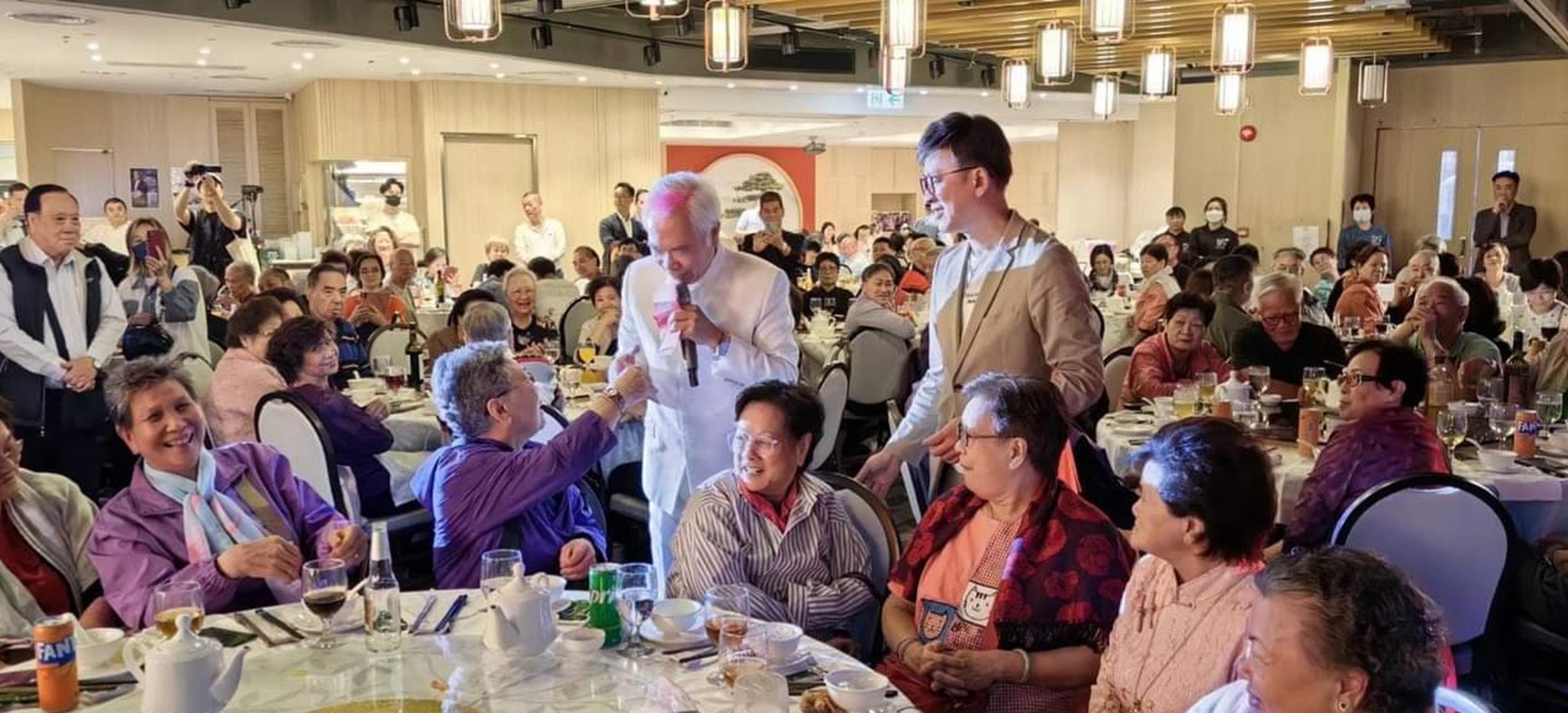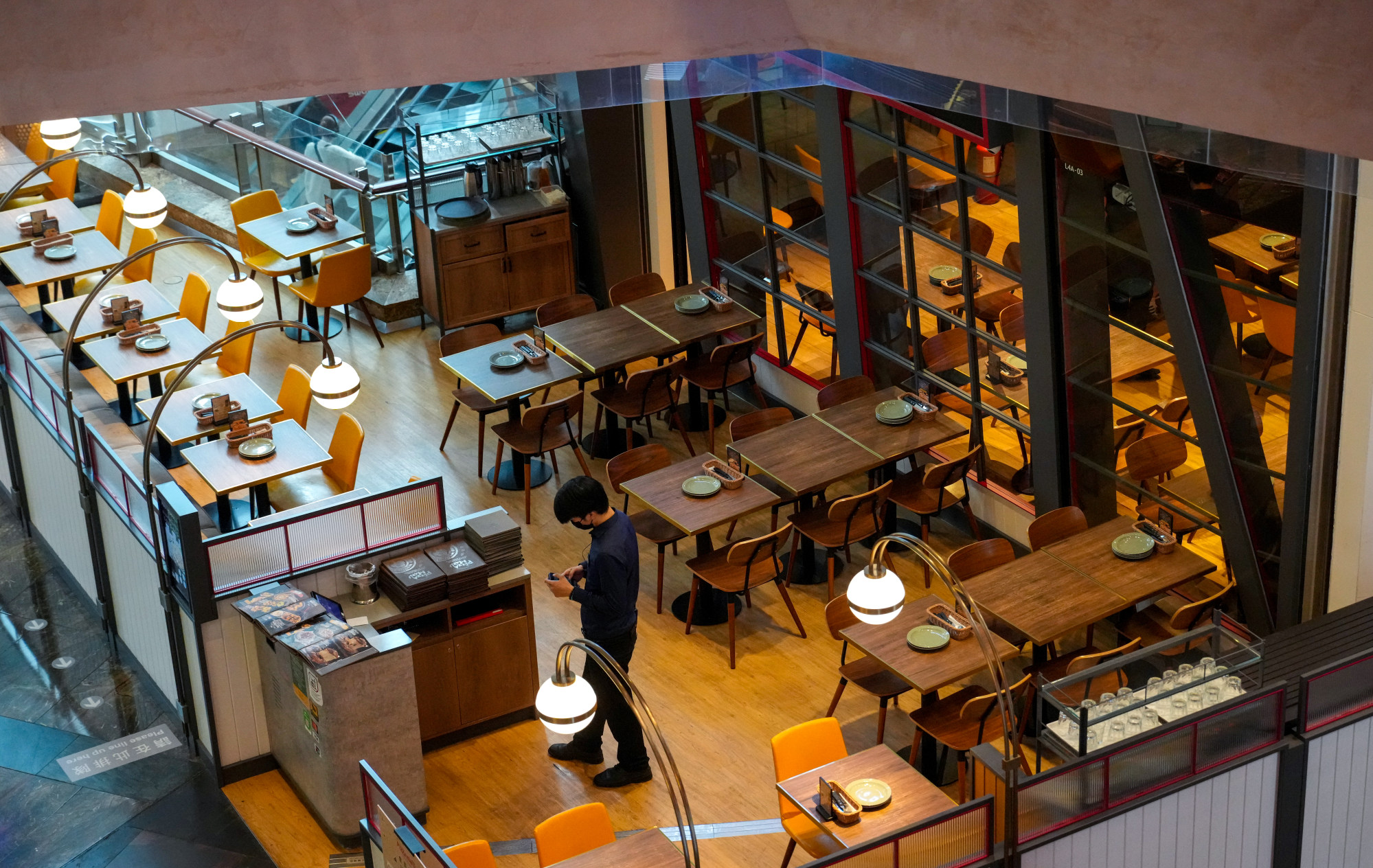
Hong Kong’s ailing restaurants ask mainland Chinese operators for survival tips, call on veteran singers to strike a chord with diners
- Restaurateurs say they have used every tactic to lure customers, from issuing coupons to hosting small-scale concerts amid drop in business
- Some have called on seasoned entertainers such as ex-TVB actor and singer Lee Lung-kei to perform at their venues and help fill tables
Hong Kong’s beleaguered dining industry has turned to its counterparts in mainland China for survival tips, with some operators resorting to staging small shows by veteran singers to lure customers amid closures and a drop in business.
Several restaurant owners told the Post they had used every possible tactic to attract diners, from issuing coupons and rolling out new offerings to slashing the prices of set meals, linking up with other operators and putting on small-scale concerts.
Operators said they had turned to seasoned entertainers such as 73-year-old former TVB actor and singer Lee Lung-kei, who was among the most popular bookings, as they looked to improve the atmosphere and draw in customers.
Simon Wong Ka-wo, president of the Hong Kong Federation of Restaurants and Related Trades, estimated that more than 700 restaurants had shut down in the past few months amid a trend of diners increasingly heading north and overseas, while over 400 outlets had been set up.
“The wave of business closures may be worsening, especially in April as restaurants have been hard hit by outflows of customers to the mainland and overseas,” he said.
Wong pointed out that some outlets had begun asking counterparts in neighbouring Shenzhen and other mainland cities for advice on managing areas such as cost control and digital tools as they grappled with the bleak conditions.
‘Miserable’: Hong Kong restaurants lament drop in business over Easter holiday
Hongkongers have been drawn to the mainland, especially Shenzhen, for dining and shopping because of lower prices, as well as the range of quality services and delicacies available.
“Facing the economic chill, many restaurants can’t afford to dish out more promotions or roll out more products. They’re not in the mood to innovate. At present, they are most concerned about controlling costs,” Wong said.
Some were looking to draw inspiration from the “very creative” practices of mainland operators, he said.
“Local outlets have tried to draw on the mainland experience of using smart management such as digital payments to rein in costs and save manpower,” he said. “Many local restaurants have been very outdated, still insisting on cash-only payments. This is not convenient for patrons.”
Ray Chui Man-wai, chairman of Kam Kee Holdings which runs 38 outlets and has closed seven this year because of the downturn, said the industry had started to reinvent itself by experimenting with the new offerings.

“Restaurants have resorted to every possible means to attract diners, such as innovative dishes and other offerings. They need to stop resting on their past laurels and try to figure out a new successful formula,” he said.
“We can’t just rely on our reputation as a gourmet paradise, as many other places such as Shenzhen have also become gastronomic hotspots with a greater variety of delicacies and cheaper prices.”
Chui said his restaurant Chill Out Chaozhou Cuisine in Aberdeen had hosted a mini-show by veteran singers such as Lee every month, charging about HK$5,000 (US$638) per table.
He added that the shows always drew a large crowd.
“We can’t make any profits out of this as we have to pay for the singers and the live band. We just want to spice up the atmosphere for attracting more local diners to stay in Hong Kong and spend at night,” said Chui, who is also the president of catering body the Institute of Dining Art.
“With the show we may break even, but without it we will be likely to suffer a big loss with just a few tables of diners at night.”

Singer Lee, who was recently in the media spotlight after his fiancée was accused of overstaying in the city and forging documents, told the Post an increasing number of restaurants had invited him to perform recently.
“We had a full house for every show. One time the response was so overwhelming that the restaurant had to open four more tables to cope with the booking,” he said.
“My fans are very supportive of me. There have been locals and mainland fans attending the show with some fans even bringing their parents along. I hope my performances can help the restaurants gain more business and retain diners.”
David Leung Chi-wai, chairman of Seafood Delight Group, which has 13 Chinese restaurants, said his group had staged a musical show once a month with discounted set meals.
‘Hong Kong restaurants ready for disposable plastics ban, but worried over cost’
“We have suffered a 20 per cent dip in business compared with last year. Facing the double blow of residents heading across the border to spend and landlords increasing rent amid a manpower shortage, we are in a dire situation,” he said.
Leung said apart from the industry improving its competitiveness, landlords also had to step up. He called on them to reduce rent and distribute vouchers to encourage spending at shopping centre restaurants.
Martin Chan Keung, owner of Fresh Seafood Restaurant in Tsim Sha Tsui, which suffered a drop of 50 per cent business during Easter, said the new deals and music shows only had a short-term impact.
“I have thought about all these measures and my restaurant also rolled out a promotional meal set of fish maw dishes at only HK$128 per person. But all these measures don’t have a lasting impact,” he said.
“Now we rely on our food quality and service standards to please and retain our customers.”

